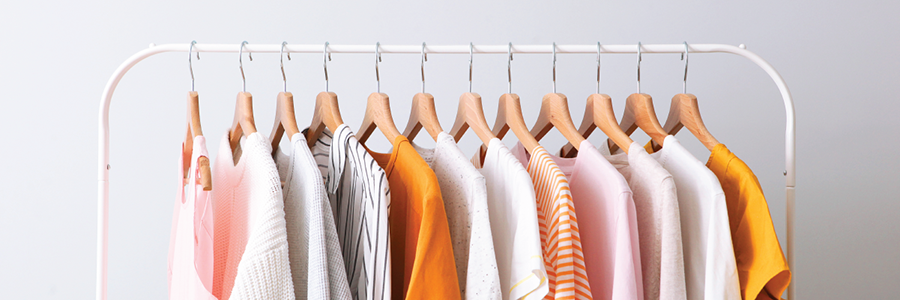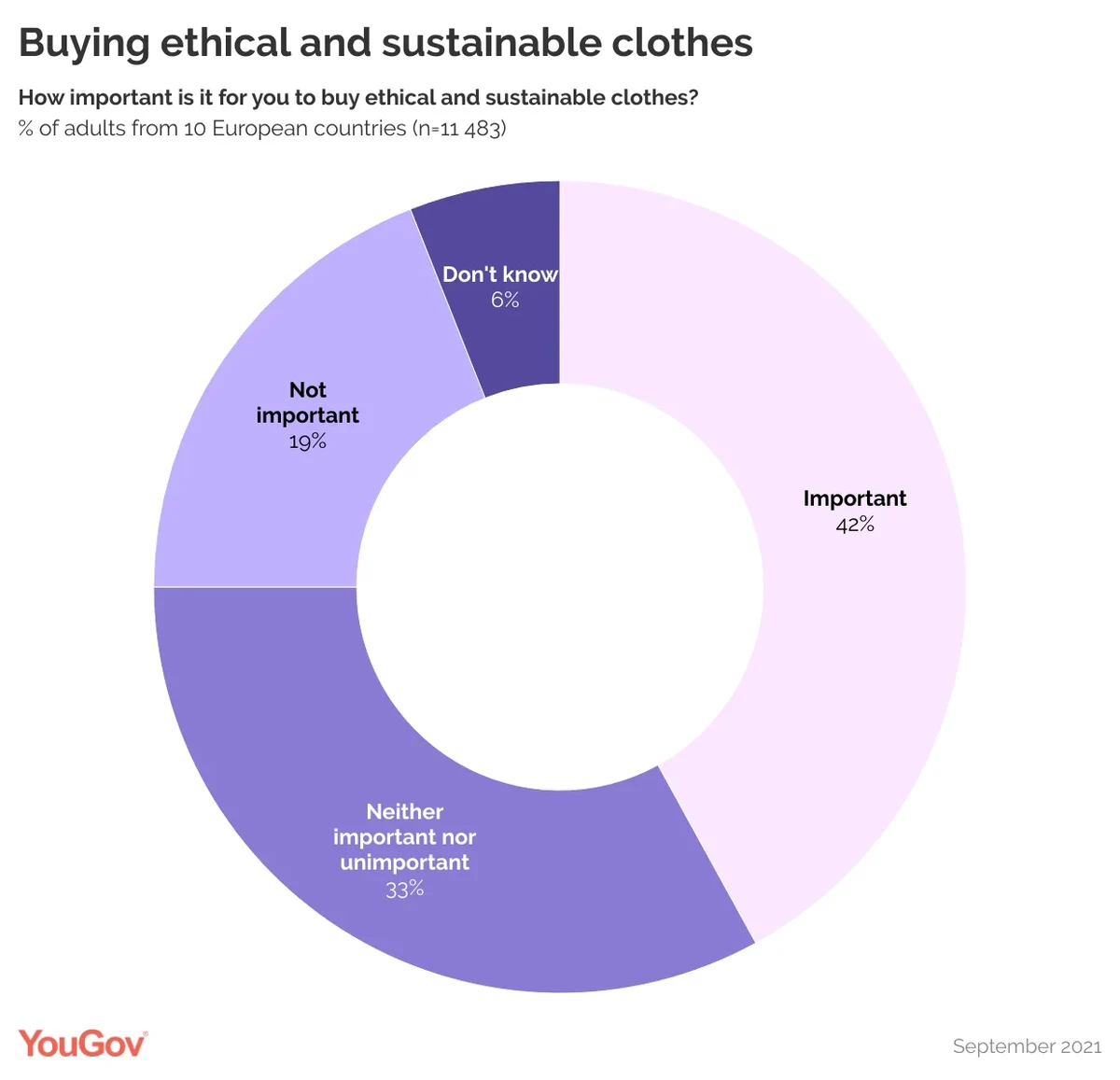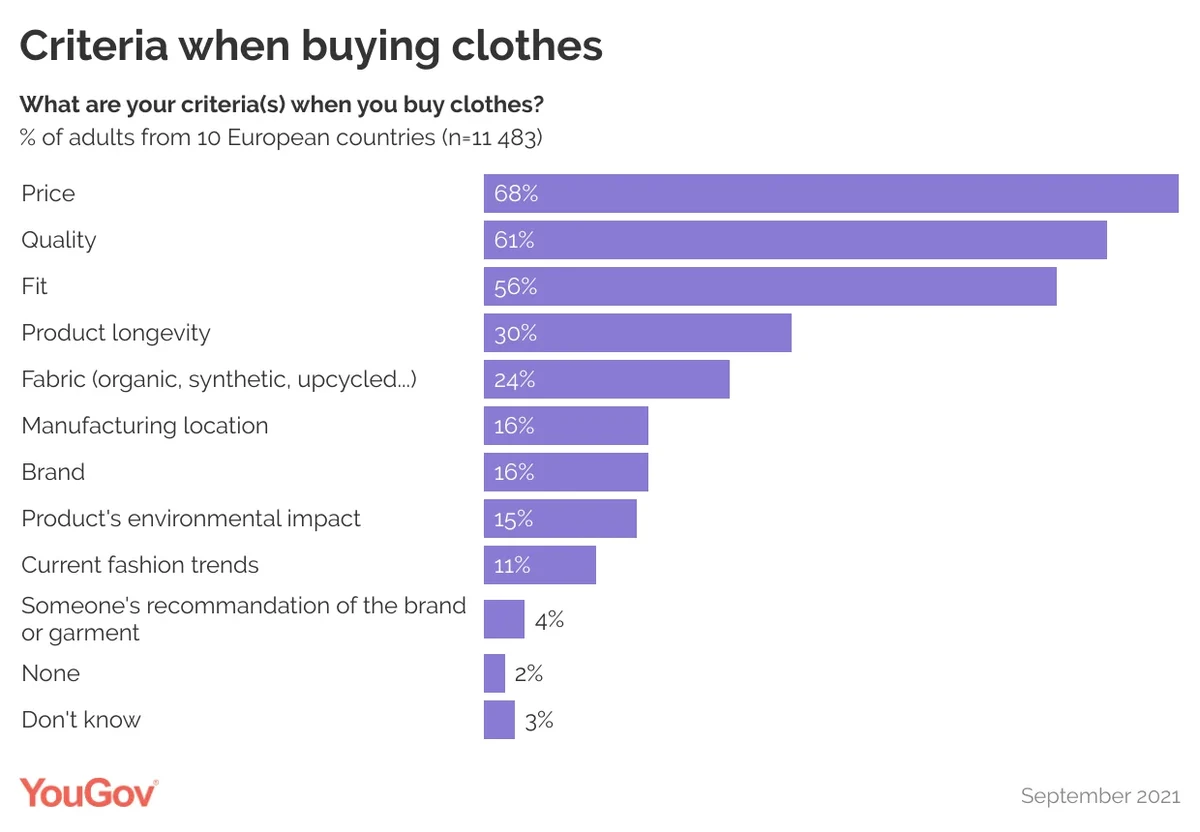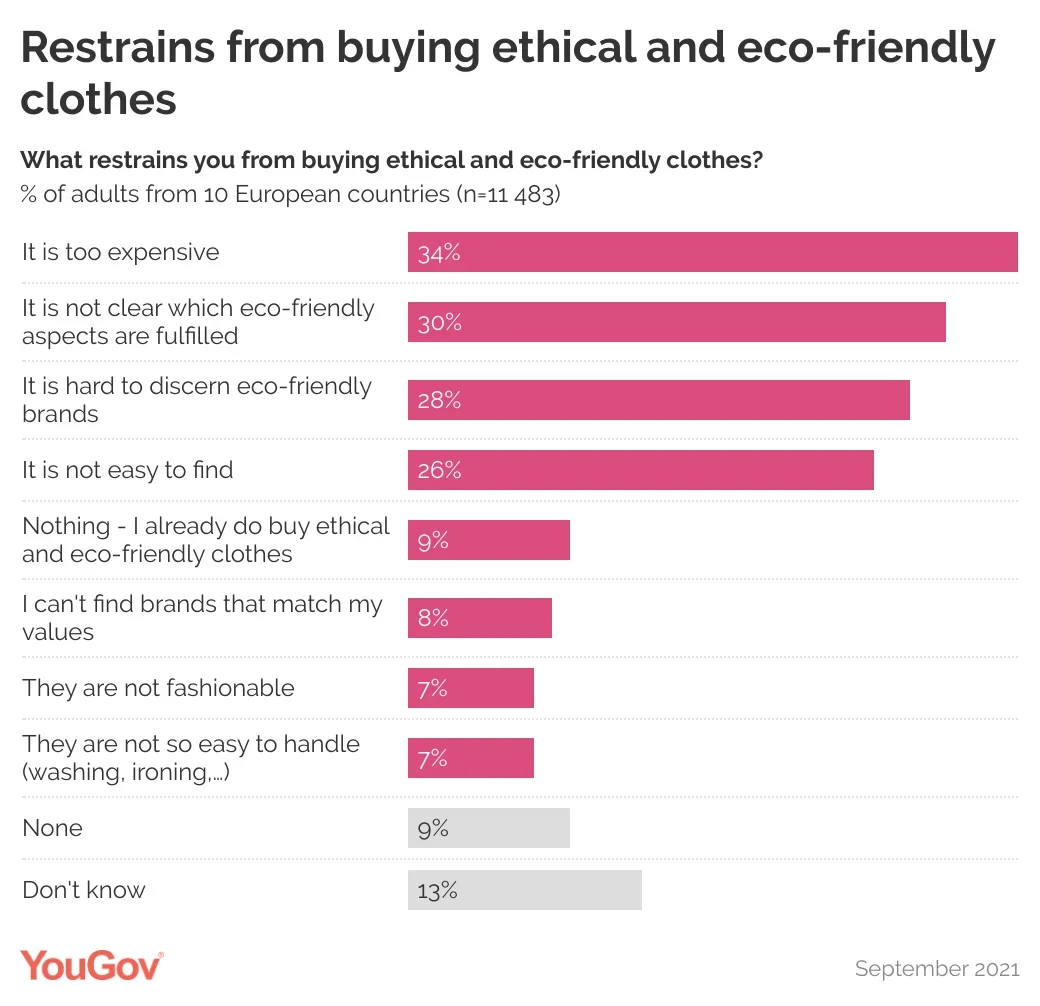
Buying sustainable clothing is important for every 2 out of 5 Europeans
In its new report ´European Fashion Report 2021’, YouGov investigates the views of over 11,000 people in 10 different countries on sustainable fashion.
The concept of sustainability has gained a foothold in the vast majority of sectors. However, according to European consumers it is most important in the food and drink, energy, transport and car sectors.

According to the new European Fashion Report 2021, the fashion industry comes in at 8th place among those sectors where sustainability is most important for consumers. 42% of consumers from 10 European countries say that it is important for them to buy ethical and eco-friendly clothes. Italians (60%) and Spaniards (56%) agree most with the statement, whereas Danes and Norwegians least agree (24%) with the statement.
What is important for consumers when buying clothes?

On a European level, price is the most important criterion for consumers when buying clothes (68%). The next most important criterion for consumers is quality (61%), while the fit comes in at third place (56%).
Sustainable aspects are far down the list. 30% prioritise product longevity, with a slightly smaller 24% prioritising the fabric (recycled, organic, synthetic ...), while 15% prioritise the product's environmental impact.
However, the report does show that there are many reasons why Europeans do not buy more ethical and eco-friendly clothes.

The price is decisive. 34% think that buying ethical and eco-friendly clothes is too expensive. In addition, 30% think it is not clear which eco-friendly aspects are fulfilled, and 28% say it is hard to discern which brands are eco-friendly.
Click here to read more and to download the white paper
About the survey
The survey is based on interviews with 11,483 representatively selected people aged 18+ years from YouGov’s panel in September 2021. Of these, 1,010 were in Denmark, 1,008 in Finland, 1,007 in Norway, 1,026 in Sweden, 1,048 in France, 1,138 in Italy, 1,081 in Spain, 2124 in Germany, 1013 in Austria and 1,015 in Switzerland.